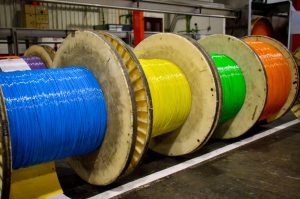Access to reliable high-speed internet has become essential for education, healthcare, and economic development. Recognizing this, Michigan is investing substantially to bridge the digital divide affecting its underserved communities. In collaboration with the Michigan High-Speed Internet Office, Governor Gretchen Whitmer has unveiled a plan to allocate over $456 million toward expanding broadband infrastructure statewide.
The initiative is primarily funded through the Realizing Opportunity with Broadband Infrastructure Networks (ROBIN) grant program, which contributes $238 million. An additional $218 million is sourced from matching funds provided by local governments and private entities, bringing the total investment to $456 million. The program aims to connect 71,500 locations, including homes and businesses lacking internet access.
Each new connection is estimated to cost $6,377, with the state covering $3,329 per connection and the remaining amount funded through local and private contributions. This investment underscores Michigan’s commitment to ensuring that all residents have access to the digital resources necessary for modern life.
Governor Whitmer’s Vision
Governor Whitmer emphasized the critical importance of this initiative, stating, “Access to affordable, reliable high-speed internet is a necessity to pay the bills, do homework, access telehealth services, and so much more.” She further highlighted that the program has already connected 10,000 homes and businesses, marking a significant milestone in the state’s efforts to build this essential infrastructure across all regions of Michigan.
The program predominantly focuses on deploying fiber-optic technology to deliver high-speed internet. Eric Frederick, Chief Connectivity Officer for the Michigan Department of Labor and Economic Opportunity, advocates for fiber optics as the optimal solution, citing its consistent performance and durability. “Unlike satellite systems like Starlink, fiber provides consistent high-speed internet uncompromised by bad weather, signal latency, or limited bandwidth availability,” Frederick explained. He also noted that fiber infrastructure has a longer lifespan and is more cost-effective than satellite systems.
While the investment per connection is substantial, state officials argue that the long-term benefits justify the expenditure. Enhanced internet access is expected to stimulate economic growth, improve educational outcomes, and provide greater access to healthcare services through telehealth. However, some experts caution that government-managed programs may incur higher costs than private-sector initiatives. Ted Bolema, a senior fellow at the Mackinac Center for Public Policy, expressed concerns that various agendas can influence such programs, potentially leading to inefficiencies and diverting funds away from truly underserved rural areas. (Michigan Capitol Confidential)
Michigan’s ambitious investment in broadband infrastructure represents a decisive step toward eliminating the digital divide within the state. By allocating significant resources and focusing on reliable fiber-optic technology, the initiative aims to provide all residents equitable access to high-speed internet. As the program progresses, it will be essential to monitor its implementation to ensure that it effectively addresses the needs of underserved communities and delivers on its promise of universal connectivity.



